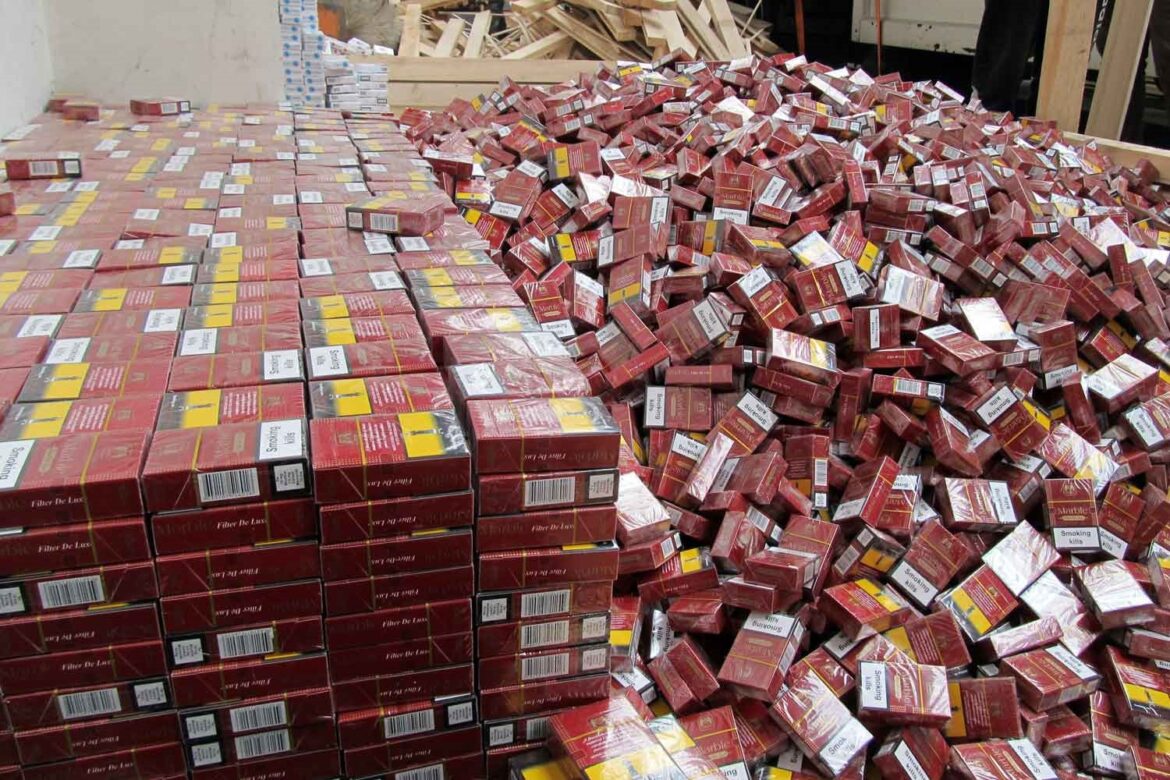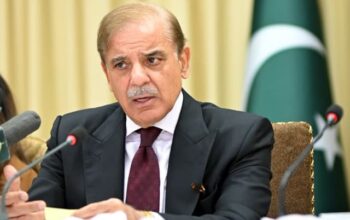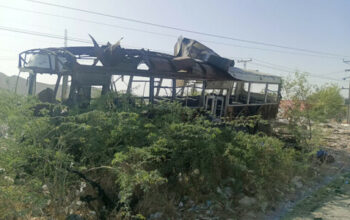By Staff Reporter
The International Monetary Fund (IMF) has reported that Pakistan’s tax compliance gap stands at 3.5 percent of its Gross Domestic Product (GDP), with key sectors including retail, transport, and real estate contributing significantly to the shortfall.
According to the IMF’s latest estimates, retail sector non-compliance accounts for 1.1 percent of GDP, followed by transport (0.7 percent) and real estate (0.2 percent). The findings also highlight inadequate compliance with track-and-trace systems, exacerbating smuggling and counterfeiting.
Notably, the illegal tobacco trade alone is estimated to cost the country Rs300 billion annually, driven by smuggling through border areas and the presence of untaxed and counterfeit cigarettes.
Analysts also warned that the cigarette industry’s tax compliance gap is alarming and the country needs to strengthen enforcement and reform tax policies to address this issue.
The tobacco market has witnessed a surge in illicit cigarettes, accounting for 58% of total sales. Multinational companies, Pakistan Tobacco Company (PTC) and PMI, contribute 98% of taxes collected from the industry but struggle to compete with smuggled brands.
The government’s inaction has emboldened smugglers. Illicit cigarettes are available everywhere, and legitimate businesses are suffering. The entire supply chain of illicit cigarettes is involved, from manufacturers to wholesalers, distributors, retailers, and kiosk stages. There is an element of lack of enforcement on the part of tax machinery, wreaking havoc on revenue mobilization efforts planned by the government.
The total volume of the cigarette industry is estimated at 81-82 billion sticks in the country. However, for the first time in the country’s history, the share of illicit cigarettes has risen to 58 percent, while the legitimate industry, comprising two multinational companies — PTC and PMI— has shrunk to 38 percent.
Federal Excise Duty (FED) hikes have exacerbated the problem. In recent years, FED increased by 200%, leading to manifold growth in untaxed cigarettes. Historical data reveals a disturbing trend, with illicit cigarettes accounting for 16.7 billion sticks in 2014-15, rising to 26.9 billion sticks in 2015-16, and surging to 46.8 billion sticks in 2016-17.
Consequently, government collections plummeted from Rs 102 billion in 2014-15 to Rs 84 billion in 2016-17. A recent study exposes the extent of tax evasion, with 104 cigarette brands sold below the Minimum Legal Price (MLP), 45 smuggled brands sold above MLP, and 53% of cigarette brands sold below MLP.
Experts warn of severe consequences, stating that the economy cannot afford this revenue loss. The government must act decisively to address cigarette smuggling. Pakistan’s budget deficit and dwindling revenue make it imperative to tackle tax evasion.
The IMF’s estimates underscore the urgent need for reform. The government should consider reforming tax policies and enhancing enforcement as the country needs to demonstrate commitment to addressing tax evasion.
Strengthening border controls is crucial to combating cigarette smuggling. Pakistan’s porous borders provide an easy entry point for smuggled goods. Improving track-and-trace systems would also help authorities identify and seize illicit cigarettes.
Enhancing coordination between tax authorities and law enforcement agencies is vital to combating smuggling and counterfeiting. Effective collaboration would enable authorities to crack down on smugglers and recover lost revenue.
Industry stakeholders urge the government to implement effective track-and-trace systems, increase penalties for smuggling and counterfeiting, and enhance public awareness campaigns.
The government must protect legitimate businesses and revenue streams. Cigarette smuggling is a national issue requiring immediate attention.
Pakistan’s economic stability hinges on addressing tax evasion and smuggling. The government must prioritize reform and enforcement to recover lost revenue and stimulate economic growth. The IMF’s report serves as a wake-up call for Pakistan’s policymakers.
The nation’s economic future depends on decisive action against cigarette smuggling and tax evasion. With Rs 300 billion at stake, Pakistan cannot afford inaction. The government must act swiftly to stem the tide of illicit cigarettes and ensure that tax revenues are collected fairly and efficiently.
The Prime Minister and Cabinet ministers have publicly conceded that almost 98% of taxes collected from the cigarette industry are paid by the two multinational companies. However, this recognition has not translated into concrete actions against the entire supply chain of illicit and smuggled brands.
There is a direct linkage between increased tax rates and duties and an upsurge in the share of illicit and smuggled cigarette brands. Whenever duty and taxes were increased, the share of illicit cigarettes rose proportionally.
The government faces mounting pressure to address cigarette smuggling. Recent studies have highlighted the alarming extent of tax evasion in the cigarette industry. The easy availability of low-priced smuggled and tax-non-paid cigarettes nationwide has crippled the compliant cigarette industry.
Also non-compliance with the Track & Trace system, cigarette sales below the minimum legal rate, price disparities, and numerous other issues have not only crippled the compliant cigarette industry but also dented the national exchequer with an annual loss of Rs300 billion.
The government must consider reforming tax policies to reduce the incentive for smuggling. A comprehensive approach addressing tax evasion, smuggling, and counterfeiting is essential to reviving Pakistan’s economy.
The cigarette smuggling epidemic demands immediate attention. The government must prioritize enforcement, reform tax policies, and protect legitimate businesses to recover lost revenue and stimulate economic growth.
Copyright © 2021 Independent Pakistan | All rights reserved




